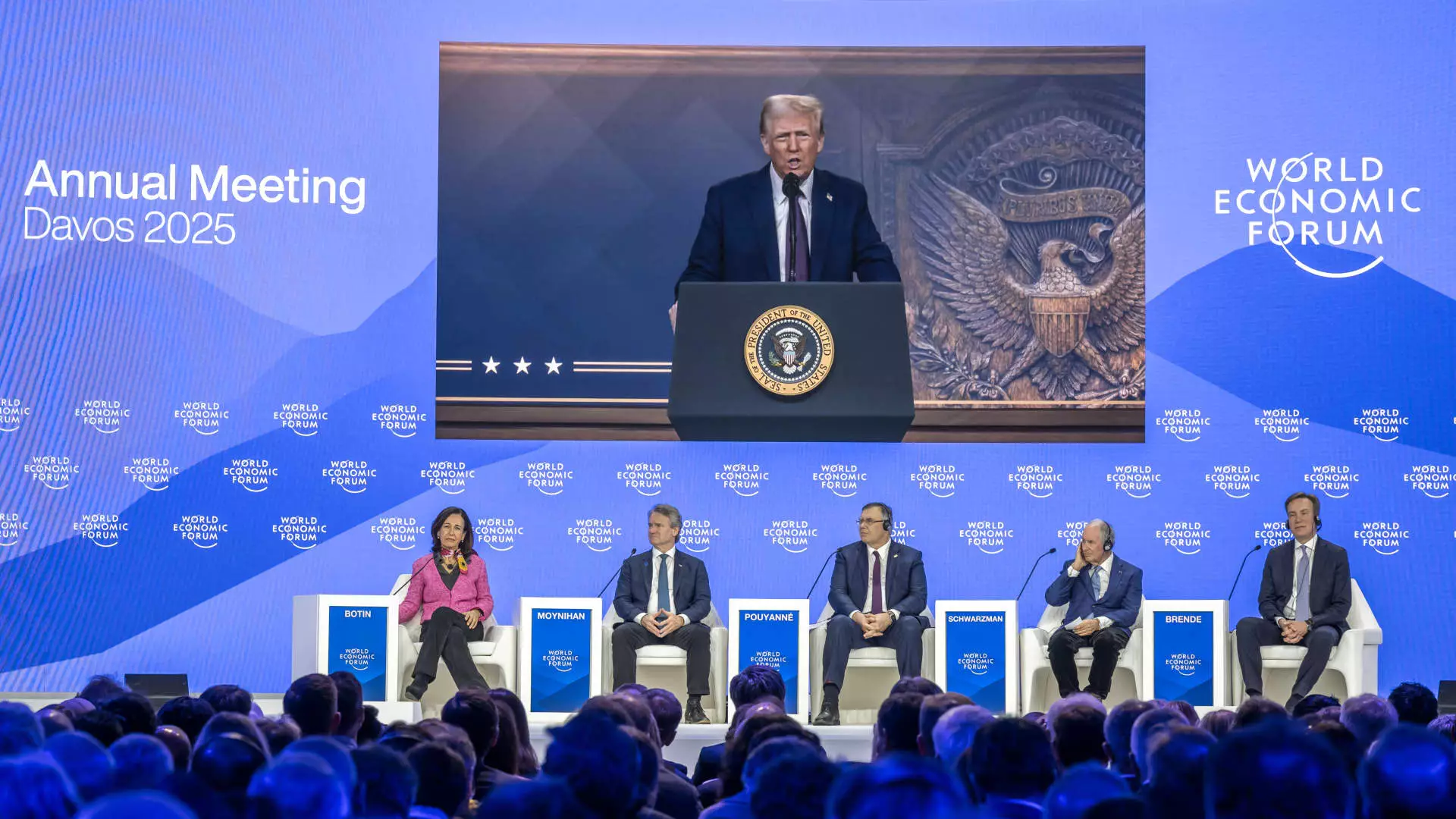The intersection of politics and banking has long been a contentious issue, and recent events have brought this debate back into the limelight. During a video address at the World Economic Forum in Davos, former President Donald Trump reignited the dialogue about perceived biases within America’s banking system against conservative individuals and organizations. His comments targeted the CEOs of two of the largest banks in the United States: Bank of America and JPMorgan Chase. While both banks have categorically denied Trump’s assertions, the controversy raises important questions about the relationship between financial institutions and politics.
In his remarks, Trump accused Bank of America CEO Brian Moynihan and JPMorgan Chase CEO Jamie Dimon of implementing policies that allegedly discriminate against conservative clients. “Many conservatives complain that the banks are not allowing them to do business,” Trump stated, urging the executives to reconsider their approaches. The crux of Trump’s argument revolves around the idea that banks are selectively serving clients based on their political affiliations, an allegation that both banking giants are eager to refute.
Critics have argued that Trump’s comments reflect a broader narrative that suggests the banking industry is out of touch with a significant portion of the American populace. This assertion is particularly pertinent in an increasingly polarized political landscape. While it is essential for financial institutions to operate based on sound business practices and regulatory compliance, the optics of their client relations can often sway public perception.
In response to Trump’s accusations, representatives from both Bank of America and JPMorgan Chase were quick to clarify their positions. Bank of America emphasized its commitment to serving over 70 million clients regardless of political beliefs. “We have never and would never close an account for political reasons, full stop,” echoed a JPMorgan spokeswoman. Such statements are crucial as they seek to delineate a clear boundary between the perceived discrimination and the legal frameworks under which banks operate.
This dialogue around alleged banking discrimination stems from post-financial crisis regulations introduced in response to heightened concerns about fraud and money laundering. The banking sector has faced significant pressure to scrutinize its clientele, a practice that some argue has inadvertently impacted clients in specific industries, including those involved in politically sensitive sectors like firearms and payday lending.
Both banks assert that their decisions regarding account eligibility are based strictly on business considerations, including the nature of the services provided and compliance with federal regulations. Amidst the political storm, the challenge remains for these institutions to balance compliance with the need for sustained client relationships, especially with the increasing number of allegations regarding discrimination.
Trump’s claims are not merely an isolated incident; rather, they are part of a larger narrative concerning the relationship between financial services and conservative political spheres. Influential figures within Trump’s circle continue to echo claims about systemic discrimination, lending credence to concerns amidst a backdrop of allegations from various sectors. For instance, assertions made by Kansas Attorney General Kris Kobach, regarding Bank of America’s supposed closures of accounts belonging to faith-based organizations, illustrate the gravity of these claims.
Bank of America’s rebuttal to these accusations emphasizes the organization’s focus on regulatory compliance and internal policies rather than political opinions. The bank’s assurances that religious or political beliefs do not influence their account management decisions are critical in maintaining public trust.
Moreover, the broader implications of these discussions cannot be ignored. As political ideologies evolve and intertwine with consumer rights, financial institutions face both challenges and responsibilities. The balance of ensuring compliance with legal frameworks while fostering inclusivity and satisfaction among diverse customer bases becomes increasingly complex.
As the 2024 election approaches, expect further scrutiny of banking practices and their relation to political affiliations. Many in the financial sector have expressed concerns over the consequences of politically charged narratives that could lead to economic ramifications. The perception that banks are engaging in politicized decision-making could potentially lead to decreased trust among clients, resulting in reputational damages and reduced business opportunities.
Interestingly, despite the heavy criticism and claims made by Trump, both Bank of America and JPMorgan Chase continue to enjoy stable market conditions, with their share prices showing resilience. The banking industry, perceived as a significant benefactor of Trump’s presidency, has much at stake in these discussions, potentially shaping the landscape for future regulations and public perceptions.
The dynamic between politics and banking necessitates careful navigation as both sides seek to present their narratives compellingly. Accusations of political discrimination may resonate deeply within certain segments of the population but also risk alienating a broader client base that values equitable treatment regardless of ideology. The banking sector’s response will be crucial not only for its immediate concerns but also for the long-term implications of maintaining integrity and inclusivity in an increasingly polarized society.

